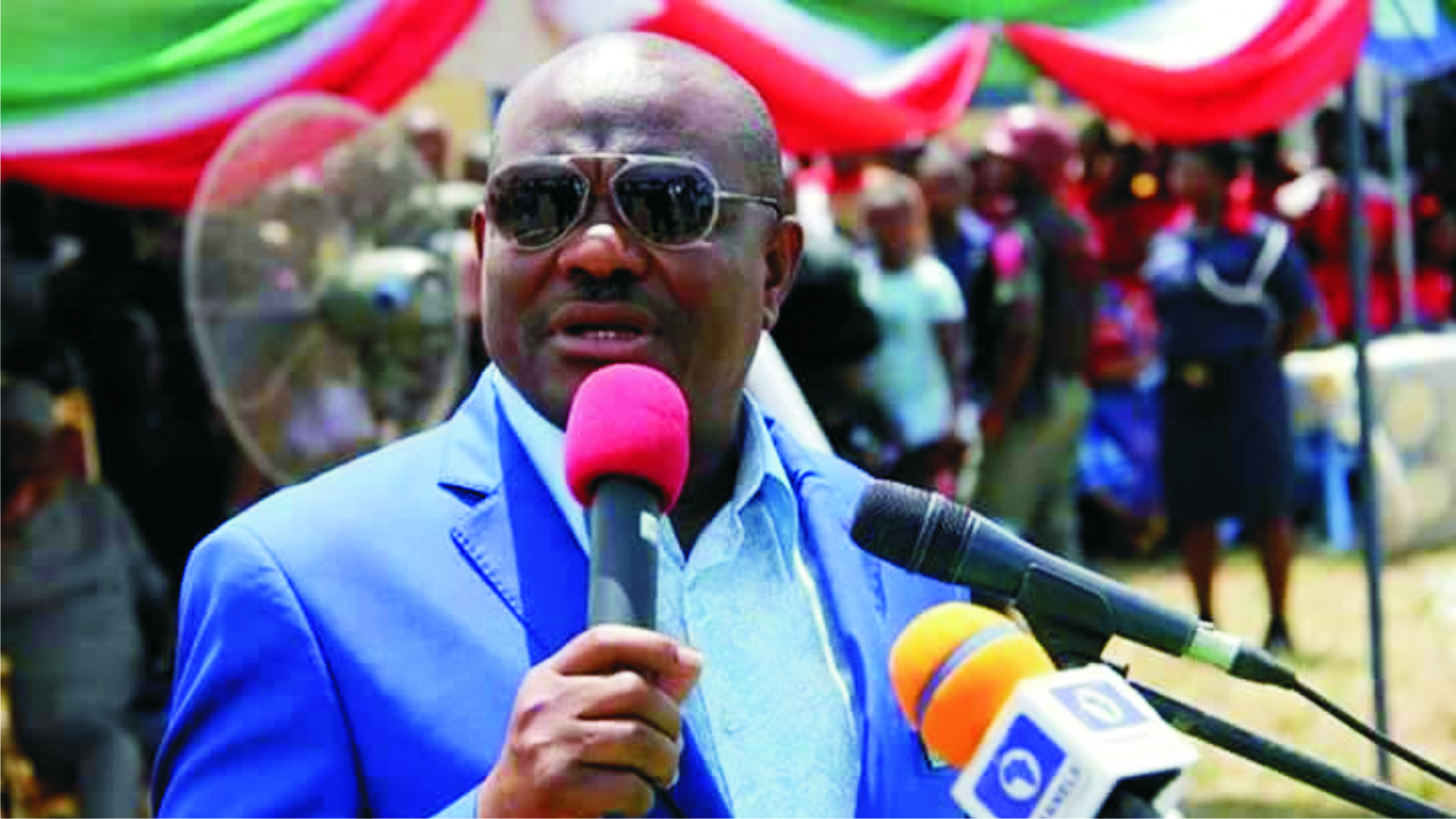Editorial
Bravo, Gov Wike!

The recent landmark judgement of the Supreme Court reaffirming the victory of Rivers State Governor, Chief Nyesom Wike, in the 2019 gubernatorial election did not come to many as a surprise.
The apex Court, in a judgement delivered by a panel of three Justices upheld Wike’s appeal against the decision of the Court of Appeal which reinstated the petition of the candidate of the African Action Congress (AAC), Biokpomabo Awara.
On Friday, October, 25, the Supreme Court, in its judgement by three Justices led by Justice Inyang Okoro, ruled that hearing of an abandoned petition amounted to no other purpose than academic exercise, adding that the hearing was an exercise in futility.
The Rivers State Governorship Election Petition Tribunal had earlier in October dismissed the petition of AAC candidate, Awara, declaring Wike winner of the poll, which was later challenged by the AAC candidate at the Court of Appeal.
Earlier, the apex court also upheld Wike’s appeal against Awara with appeal number SC1111/2019 over a judgement by the lower court dismissing the appeal by the governor on the appointment of counsel to Awara, to file court processes.
Reacting to the judgement, Wike declared that he expected the confirmation of his re-election by the Supreme Court because the defeated Governorship candidate of the African Action Congress ( AAC), Biokpomabo Awara could not have won an election he did not contest.
While The Tide agrees no less with Governor Wike that from the very beginning, there was no issue because the AAC candidate posed no problem, since he was unknown to Rivers people, we find it expedient to felicitate with the Governor and the people of Rivers State on the expected victory at the Supreme Court.
The Supreme Court judgement, no doubt, is a victory of good over evil as it has cut short the expectation of the enemies of Rivers State who may have been hell bent to plunge the state into another round of bloodbath if the reverse had been the case.
We also salute the finesse of Governor Wike in ensuring smooth sailing of the ship of state despite concerted efforts by the opposition to cause a breach in the smooth governance of the state while the petitions lasted at the various election tribunals.
The Tide commends Governor Wike’s demonstration of uncommon maturity and resoluteness in his commitment to continue the implementation of his lofty development agenda under the NEW Rivers Vision evidenced by the scores of projects commissioned to mark 100 days of his second term in office.
Now that the contest over the legality or otherwise of the Wike’s electoral victory is put to rest, we urge all players in the politics of Rivers State to bury their hatchets and join hands with the government to ensure speedy development of the state.
On the other hand, we equally enjoin the governor to continue to extend the olive branch to players on the other side of the political divide to synergise with his administration towards bequeathing a better Rivers State for the present and future generations. There should be no victor, no vanquished.
We place such demand on all the political gladiators and their followership because Rivers State has had its share of unprecedented bloody political crisis in the last couple of years, and can no longer afford to witness such ugly trend anymore. Suffice it to say that the sudden drop in the rate of violent crimes in the state after the 2019 elections has given credence to the assertion that most of such incidents were politically-motivated.
All that is required now is for everyone to join hands with Governor Wike to place Rivers State on the faster lane of development. No doubt, the present administration in the state has done a lot to institute peace and development, and any further plot to destabilise the already prevailing peace and development of the state is unacceptable.
On this note, we say bravo, Governor Wike!
Editorial
Beginning A New Dawn At RSNC

Editorial
Sustaining OBALGA’s Ban On Street Trading

Editorial
AFCON ’25: Bravo, Super Eagles, But…

-
Maritime3 days ago
Nigeria To Pilot Regional Fishing Vessels Register In Gulf Of Guinea —Oyetola
-

 Sports3 days ago
Sports3 days agoGombe-Gara Rejects Chelle $130,000 monthly salary
-
Maritime3 days ago
Customs Declares War Against Narcotics Baron At Idiroko Border
-
Maritime3 days ago
NIMASA,NAF Boost Unmanned Aerial Surveillance For Maritime Security
-

 Sports3 days ago
Sports3 days agoTEAM RIVERS SET TO WIN 4×400 ” MORROW” …Wins Triple jump Silver
-

 Sports3 days ago
Sports3 days agoNPFL Drops To 91st In Global League Rankings
-
Maritime3 days ago
NIWA Collaborates ICPC TO Strengthen Integrity, Revenue
-

 Sports3 days ago
Sports3 days agoNPFL Impose Fines On Kwara United Over Fans Misconduct

